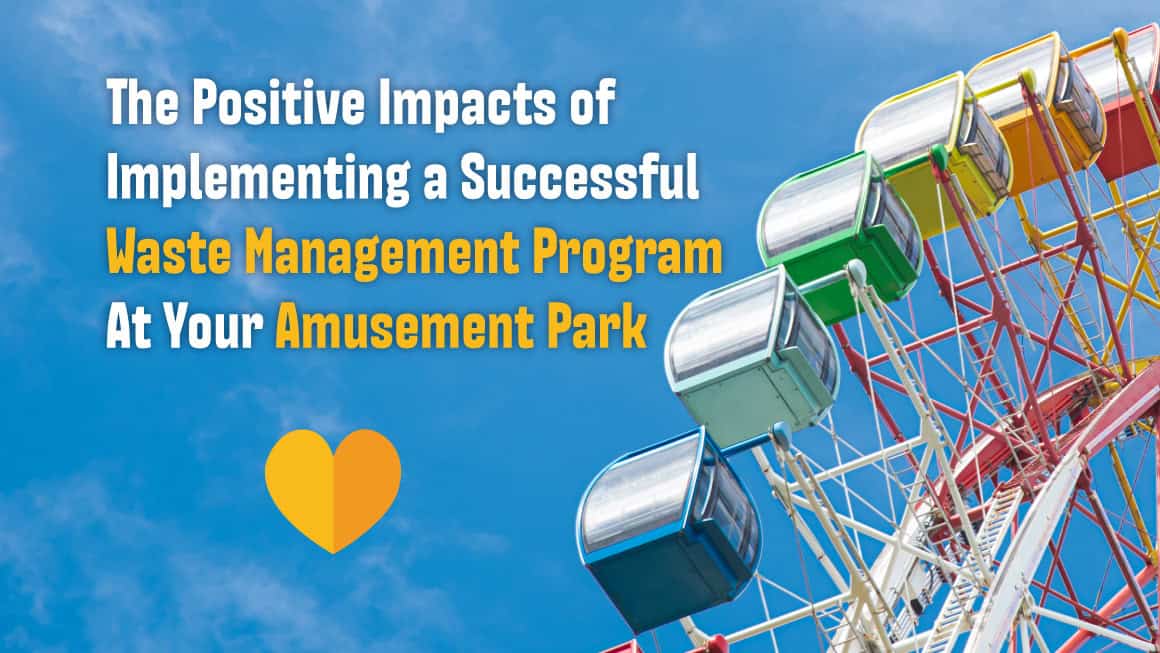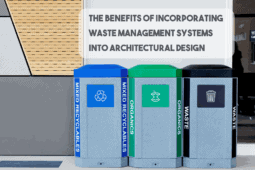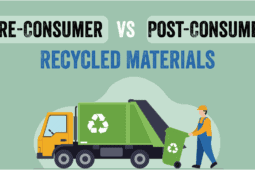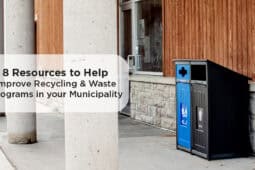
October 30, 2025 By Tyler Baillie No Comments
When guests visit your park, they come for the fresh air, the thrill of roller coasters, and the joy of shared experiences with friends and family. But while they may not immediately think about recycling as they enjoy their day, a well-maintained, environmentally-conscious park can significantly enhance their overall experience. Clean grounds, eco-friendly practices, and a visually appealing environment directly contribute to guest satisfaction.
Many amusement parks have already embraced sustainable waste management by incorporating recycling and organics collection, creating systems that are simple for guests, staff, and vendors to follow. By establishing a seamless waste management program, your park can achieve measurable improvements across multiple areas.
Economic Benefits
First and foremost, budget considerations are crucial. While it’s clear that initiating or improving a waste management program may require initial investment, the long-term financial benefits can be substantial.
Substantially Reduced Waste Disposal Costs
Waste disposal fees, particularly in high-density cities or remote locations, can quickly become a significant financial burden. By diverting recyclable materials such as paper, plastics, and metals away from the waste stream, parks can reduce their waste disposal costs by as much as 50%. Although recycling collection involves its own expenses, these costs are frequently offset by the savings generated from reducing general waste collection. The financial savings, combined with environmental benefits, make waste management programs a smart investment.
Strengthening the Local Economy
Waste management, particularly recycling, plays a pivotal role in supporting the economy. According to Waste Wise, recycling is an essential sector of the national and state economies, fostering job creation while offering cost savings for businesses and institutions. By contributing to the recycling industry, your park helps sustain jobs that support the local economy. A vibrant economy draws tourists and residents alike, resulting in potential increases in park attendance and the availability of local talent for employment opportunities.
Creating Value from Recycled Materials
Recyclable materials hold significant value in a circular economy. By working with recycling haulers and waste management partners, your park can generate cost savings by selling recyclable materials. Additionally, using recycled content in park infrastructure or marketing can reduce procurement costs while reinforcing your commitment to sustainability.
Enhancing Aesthetic Appeal and Cleanliness
Maintaining a clean, welcoming park environment is crucial to ensuring guests have a memorable experience. Implementing a robust waste management system with clear, accessible recycling options encourages guests to properly dispose of trash and recyclables, preventing litter. Not only does this improve the aesthetic appeal of your park, but it also reduces the burden on janitorial and maintenance staff, leading to cost savings on labor and resources. A clean, eco-conscious environment elevates the guest experience, making your park a more attractive destination.
Social Benefits
Amusement parks are more than just entertainment venues; they are pillars of their communities, promoting social engagement and community welfare. Expanding your park’s waste management efforts can have a profound impact on your park’s social footprint.
Demonstrating Environmental Leadership
Parks that actively incorporate recycling and organics collection send a powerful message about their commitment to sustainability. By taking bold steps to protect the environment, your park can inspire guests and staff to adopt greener habits in their daily lives. Aligning with the growing public demand for environmentally responsible businesses can also enhance your brand’s reputation, strengthening relationships with the local community.
Supporting Job Creation
A well-developed waste management program contributes to job creation, particularly in sectors related to the sorting and processing of recyclable materials. According to the Institute for Local Self-Reliance, recycling-related industries employ ten times more people than traditional waste disposal firms. By participating in this industry, your park is not only enhancing its environmental performance but also supporting local job growth and economic resilience.
Encouraging Social Responsibility
There is a ripple effect when sustainability is visibly integrated into public spaces. Guests are more likely to take part in recycling and waste management efforts when they see it in practice at their favorite attractions. By providing guests with clear recycling options and a clean environment, your park can positively influence public behavior. As social pressure encourages recycling and waste reduction, your park can serve as a model for responsible, sustainable practices.
Environmental Benefits
The urgency of addressing environmental challenges has never been more pressing. Parks have a unique opportunity to lead by example by implementing comprehensive waste management systems that go beyond traditional waste disposal to include recycling and organics collection.
Reducing Environmental Impact
Recycling plays a vital role in reducing pollution and conserving natural resources. By recycling, your park helps mitigate the release of harmful chemicals and greenhouse gases that occur when plastics and other materials are disposed of in landfills. Furthermore, recycling reduces the need for extracting and processing raw materials, which helps protect ecosystems such as rainforests and preserves natural habitats.
Expanding to Organics Collection
While recycling offers well-known environmental benefits, expanding your program to include organics collection can have an even greater positive impact. Organic waste, such as food scraps, is a major source of methane emissions when sent to landfills. Methane is a potent greenhouse gas, 21 times more effective at trapping heat than carbon dioxide. Diverting organics from landfills significantly reduces methane emissions and lowers the risk of leachate, a harmful byproduct that can contaminate water supplies.
By converting organic waste into compost, your park can also return valuable nutrients to the soil, improving soil health, reducing the need for chemical fertilizers, and enhancing local biodiversity. The environmental benefits of organics collection extend beyond park boundaries, contributing to global efforts to combat climate change.
A Role Model for Environmental Stewardship
Your park has the unique ability to inspire positive environmental change on a large scale. By implementing a comprehensive waste management system, you not only reduce the park’s ecological footprint but also set an example for guests, encouraging them to adopt similar practices at home. With thousands of visitors passing through your park’s gates each day, your efforts to promote recycling and organics collection can have a far-reaching impact.
This commitment to sustainability positions your park as a leader in environmental stewardship, setting a new standard for the amusement industry. The changes you implement today have the potential to influence countless individuals, fostering a collective responsibility for protecting our planet.
Now that we’ve filled you in on the quick list of benefits, we’re confident that you will find further success in your own program improvement, and when you do, we hope you share it with us! We would love to hear your challenges, successes, and any other industry knowledge that you have to share so that we can continue to educate and update our resources for amusement park facilities in the future.
Key Takeaways (TL;DR)
-
Effective waste-management programs at amusement parks enhance guest experience by maintaining cleaner, more appealing grounds and supporting eco-friendly practices.
-
Economic benefits include:
• Significant reductions in waste‐disposal costs (e.g., up to ~50% savings by diverting recyclables).
• Opportunity to generate value through selling recyclables or using recycled content.
• Supporting the local economy via recycling-industry jobs and improved community attractiveness. -
Social benefits include:
• Demonstrating environmental leadership, which builds brand reputation and guest/staff engagement.
• Creating jobs in recycling and waste-management sectors (noting that recycling industries employ many more people than traditional waste disposal).
• Encouraging responsible guest behaviour through visible, well-implemented programs in high-traffic public venues. -
Environmental benefits include:
• Reducing the volume of materials sent to landfill, thereby lowering greenhouse-gas emissions and conserving natural resources.
• Particularly when organics are collected: cutting methane emissions, reducing leachate risk, enriching soil via composting.
• Serving as a role model: with numerous daily guests, a park’s sustainable program can influence visitor behaviour beyond the park. -
The blog emphasizes that while there is up-front investment for infrastructure, signage, staff training and program design, the long-term gains — across economic, social and environmental dimensions — make it a smart strategic move for amusement parks.
-
It also highlights the importance of implementing a simple, easy-to-follow system for guests, staff and vendors — clarity and accessibility are key to success.







